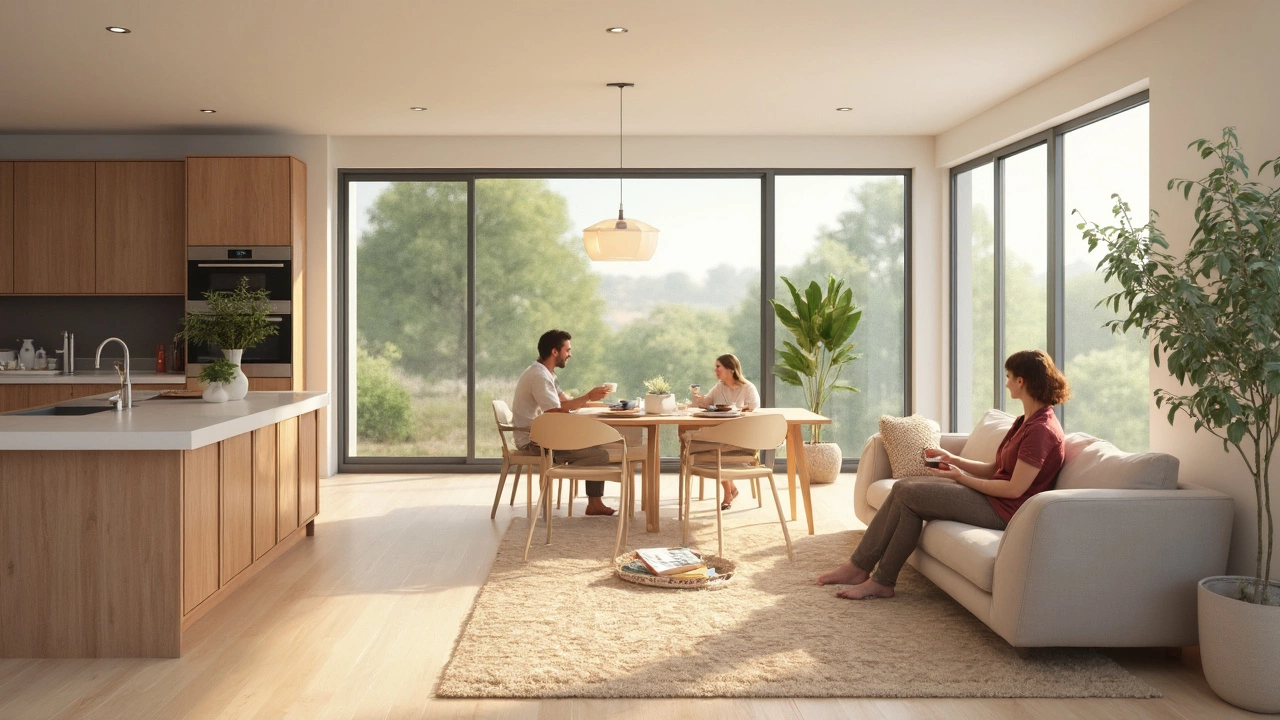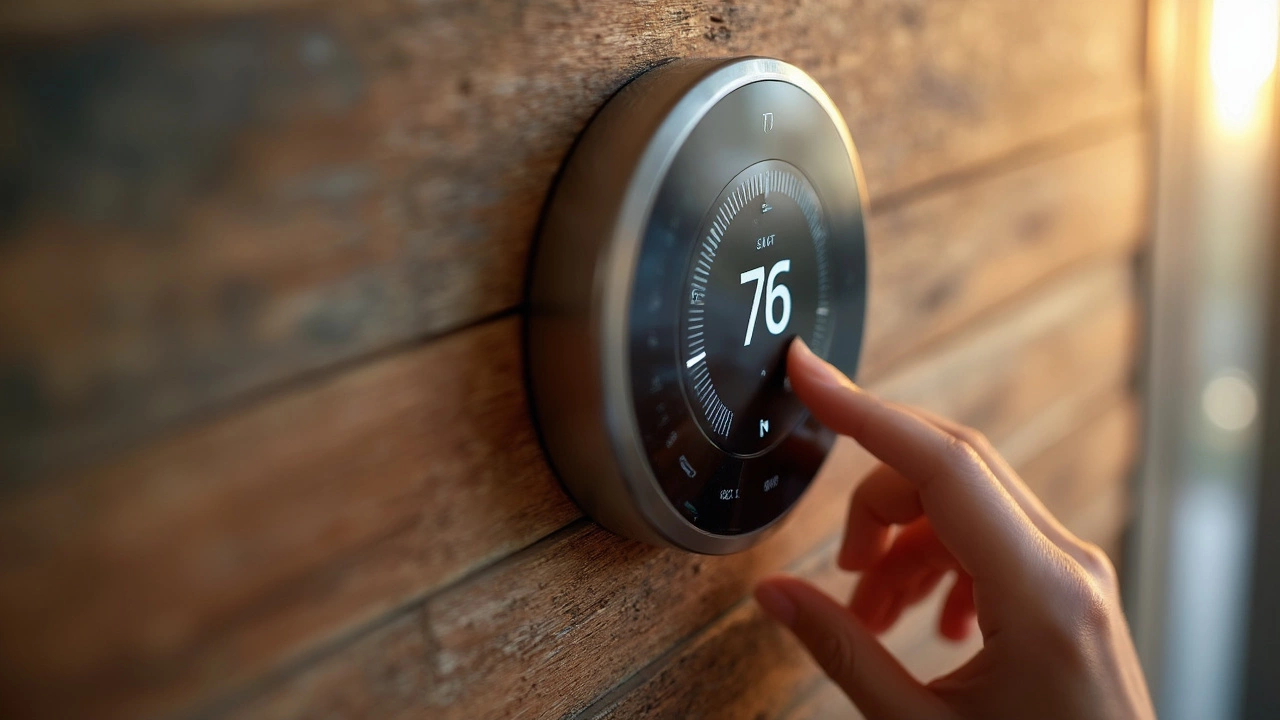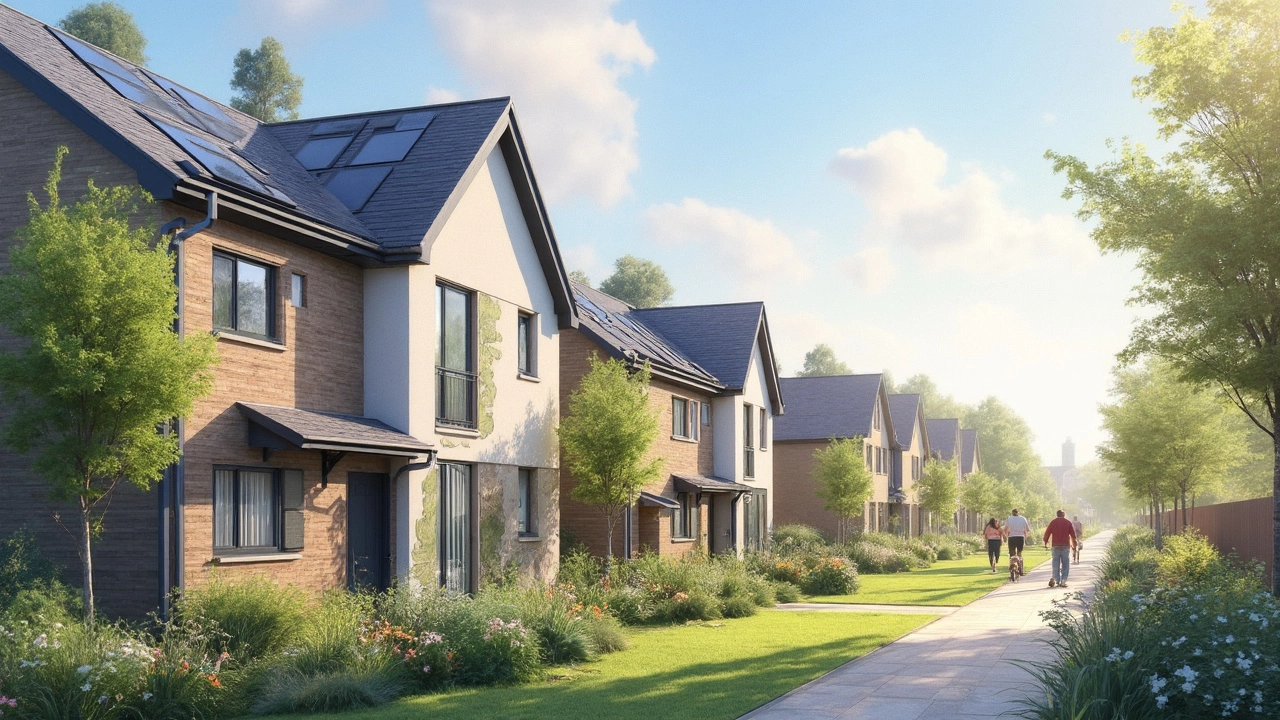So you’re on the hunt for a new home and keep hearing about “new builds.” But what exactly is a new build home? Basically, it's a house that's brand new, never been lived in. It’s like buying a freshly baked loaf of bread straight from the oven. Everything from the walls to the wires is untouched—new and ready just for you.
Why would you want a new build, you ask? For one, you get the latest in home tech and design, which means fewer repairs and possibly lower utility bills. Plus, there's something special about being the first to make memories in a place. But before you jump in, knowing the whole picture, including any extra costs or time delays, is essential.
- Defining a New Build Home
- Benefits of Buying New Builds
- Potential Drawbacks
- Financing a New Build
- Important Considerations
Defining a New Build Home
When we're talking about a new build home, we're basically discussing a property that's brand new and hasn't had any previous owners. It's like buying a clean slate. But there's more to it than just being newly constructed.
In the world of real estate, a new build usually refers to a home that's been built within the last couple of years and hasn't been occupied. So if it’s fresh out of construction and you get to pick things like the color of the walls and the type of flooring, you’re probably looking at a new build.
Many new builds come as part of larger developments where multiple houses might share the same modern style and features. Developers often build these neighborhoods to appeal to buyers looking for modern designs and energy efficiency. New builds often meet the latest building codes and environmental standards, meaning they're not just stylish but also more energy-efficient compared to older properties.
Sometimes, you might also see terms like 'off-plan' when you're exploring new builds. This means you can buy the property before the construction is even finished, often allowing you to customize certain aspects of the home.
If you're eyeing a property labeled as a new build, it's essential to confirm if it actually includes a new home warranty. Most genuine new builds come with a warranty that covers structural defects for several years, which can save you headaches and money down the line.
To sum it up, a new build home is all about newness and innovation—ready for you to put your stamp on it without worrying about any hidden gremlins in the wiring or plumbing. And who doesn’t like the sound of that?
Benefits of Buying New Builds
Alright, let’s talk about why snagging a new build home could be your best move. First up, everything's brand new, which means no creepy crawlers lurking in dark corners or hidden leaks waiting to pounce. The place is fresh from the ground up.
Then there's the energy efficiency. These homes are built with the latest techniques and materials, like top-notch insulation and cutting-edge heating systems. That means more green in your wallet and fewer greenhouse gases hitting the sky.
Customization is another big win. You get to choose your preferred finishes, colors, and sometimes even layouts. Think of it like the ultimate room service menu where you get to design your pad just the way you want it.
Worried about maintenance? Relax. Most builders offer warranties for a decade, covering structural defects and some serious issues. No surprise out-of-pocket expenses for unexpected fixes, at least for a while.
Plus, with home construction advancements, you often get extra perks like increased safety features. Modern fire safety systems, advanced locks, and alarm systems can make you feel a little more at ease when you hit the hay at night.
And hey, everyone loves a little extra community feel. New build developments often have added amenities like parks, pools, or shared hangout spots to boost that neighborhood vibe.
Here's a quick look at some potential savings:
| Feature | Potential Savings per Year |
|---|---|
| Energy-efficient appliances | $500 |
| Improved insulation | $200 |
| Modern HVAC systems | $150 |
So, if you're in the market for a home that's as fresh as a morning breeze, new builds should be at the top of your list. More eco-friendly, less maintenance hassle, and with warranties for peace of mind, it’s a solid choice for many buyers today.

Potential Drawbacks
Alright, so new build homes sound like heaven on Earth, right? Well, before you dive in, let’s chat about some not-so-sunny sides. For starters, they usually come with a premium price. Yep, they're like the iPhones of real estate—fresh, flashy, and not always budget-friendly.
Another thing to keep in mind is the location. New builds often pop up in areas that are still being developed. This means you'll have to guess if you’re buying into the next big thing or just another commuter town. Plus, there’s the intriguing journey of dealing with property developers, which can be... well, let's just say, unpredictable in terms of completion dates.
“Choosing a new build can sometimes mean paying for the promise of potential, not the guaranteed location or amenities,” says real estate expert John Heffner.
Construction quality can also be a hit-or-miss affair. While most builders aim for excellence, mistakes do happen. It's critical to perform a thorough check—maybe even hire a professional inspector to spot things you'd miss. Nobody wants to discover creaky floors or leaky roofs right after moving in.
New build homes might also lack the charm and character of older homes. If you're into vintage touches or mature trees lining your street, a new build might feel a bit, well, sterile.
Lastly, consider the ongoing fees. Many new build communities have Homeowners Associations (HOAs) with their own rules and fees. This can range from keeping your lawn a certain length to paying for community amenities.
So, is a new build home still on your wishlist? It’s a personal choice, and knowing these potential pitfalls can help you make an informed decision.
Financing a New Build
Thinking about how to pay for your new build home? It's like piecing together a puzzle. But the good news is there are several ways to do it, and with a little planning, you can find what fits your situation best.
First off, consider a mortgage specifically for new build homes. Many lenders offer these, and they cater to the unique needs of buying a home that's not completely finished yet. The process might be a bit different compared to buying an existing home, so it’s important to know your options.
- Construction Loan: This is a short-term loan that covers the cost of building the home. Once the house is done, it usually converts into a regular mortgage.
- Government Schemes: Check for any governmental help like Help to Buy schemes, which might make the down-payment part less daunting.
- Developer Incentives: Sometimes developers offer incentives like paying your stamp duty or providing a cash-back deal to entice buyers. Sweet, right?
Another cool thing about new builds is they can often come with more financing flexibility. For instance, some builders have partnerships with lenders to smooth the whole process. But don’t just jump on the first offer you see. Shop around!
Did you know that new build homes might require larger deposits compared to pre-owned homes? It’s true. Builders sometimes ask for 10-30% upfront, which might be more than a resale home, where 5-10% is often enough. So, plan accordingly.
Lastly, think about potential delays. With new builds, there’s always a chance of construction running late. This could affect your mortgage offer’s timeline, so keeping in touch with your lender is key. Ensure they're updated about your completion timeline to prevent any surprises.

Important Considerations
Buying a new build home isn't all sunshine and rainbows, though. Before you jump in, there are a few things you'll want to keep in mind. First off, don’t skip the research on the developer. Some developers have a stellar rep, while others might cut corners. Look for reviews, chat with others who've bought from them, and see if they’ve had any issues with things like build quality or delays.
Speaking of delays, they’re more common than you might think. New builds can take longer than expected, so be ready for the timeline to shift. It’s kind of like expecting a delivery that always seems to be “stuck in transit.”
Also, new builds are often in new neighborhoods, which might not have all the amenities you're accustomed to like schools, grocery stores, or public transport links. Make sure the location suits your lifestyle or plans, otherwise, you might end up feeling a bit isolated.
Then there are costs that sometimes sneak up on you. You might think, "Hey, it’s a new house! What could possibly need fixing?" But warranty might not cover everything. Plus, there might be extra fees for stuff you assumed was included, like landscaping or driveway paving.
Consider looking into the potential resale value. While new build homes are shiny and appealing now, if the area doesn’t develop as expected, the resale might not be what you hoped for.
In this little journey of buying a new build, knowing these considerations can save you from future surprises and help you make a well-rounded choice.
